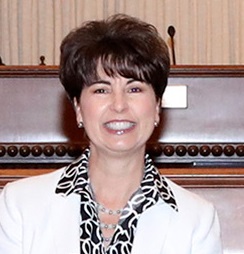When it comes to child care, California families need options that meet their specific needs and preferences. The governor’s plan to implement Universal Preschool for all 4-year-olds will work for some families, but some parents will benefit instead from selecting a community-based provider of their choice. That’s why a bill introduced Thursday by Senator Connie Leyva is so critical to the future of early care in our state.
The governor’s plan in its current form would fully implement universal transitional kindergarten at public schools by the 2025-26 school year. Transitional kindergarten is the first year of a two-year kindergarten program that uses a modified kindergarten curriculum. However, not all children are developmentally ready to enter an academic school-based setting at four-years-old, which is why the state must preserve and support other early care and education programs and settings.
Senate Bill 976 gives families the option to send their 4-year-old children to a school- or community-based provider. This bill is sponsored by community-based California early care and education stakeholders and has the support of over a dozen members of the Universal Preschool Now Coalition.

“It is critical that California offers flexibility and options for working families with children who would benefit from transitional kindergarten, but are unable to access those services because of their own work or other day-to-day responsibilities,” Senator Leyva said in a press release. “SB 976 will help parents access schooling and care options for their young children that allow for flexible hours, such as early drop-off, late pick-up, weekend care, or year-round care.”
Current law requires low-income families to pay a family fee in order to use a community child care provider of their choice. On average, California families pay about 10% of their income toward their family fee, which is above what the federal government considers affordable for child care. State-sponsored transitional kindergarten is free for all families regardless of income level but provides a uniform solution that does not meet the diverse needs of California families. Examples of why half-day school-based care may not work for some families is a parent’s nontraditional work schedule, special needs of their child, cultural preferences or proximity to a public school. SB 976 would build on universal transitional kindergarten by establishing universal preschool to allow children and families to continue to access community-based programs that meet their unique and varying needs.
A truly Universal Preschool program will preserve and support the state’s existing ECE infrastructure, including the educator workforce and center- and home-based facilities already serving 4-year-old children. If the state relies on a school-based only system, we risk losing capacity and decreasing access to care for families. “If these care facilities in the community close—which will very likely happen to many of them if we do not expand flexibility—many women will lose their jobs and families will have even fewer options for their children,” said Senator Leyva.
Early care and education (ECE) is the foundation of a child’s lifelong learning journey and research has proven that children’s brains develop more quickly at this age than at any other point in their lives. Not only does ECE prepare children for future learning, relationships, and work, but these programs also enable parents to go to work, gain training or education to increase their earning potential and sustain wages that keep families strong.
SB 976 is sponsored by the Child Care Resource Center, EveryChild California, and the California Child Care Resource & Referral Network. The bill is supported by the Universal Preschool Now Coalition, comprised of over a dozen leading children, parent, labor and community organizations from across the state. This measure will be considered in Senate policy committee(s) later this spring.

